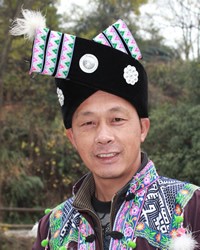Dong, Southern in China

Photo Source:
Arian Zwegers - Flickr
Creative Commons
|
Send Joshua Project a map of this people group.
|
| People Name: | Dong, Southern |
| Country: | China |
| 10/40 Window: | Yes |
| Population: | 1,242,000 |
| World Population: | 1,242,000 |
| Primary Language: | Dong, Southern |
| Primary Religion: | Ethnic Religions |
| Christian Adherents: | 0.50 % |
| Evangelicals: | 0.40 % |
| Scripture: | New Testament |
| Ministry Resources: | No |
| Jesus Film: | Yes |
| Audio Recordings: | Yes |
| People Cluster: | Tai |
| Affinity Bloc: | Southeast Asian Peoples |
| Progress Level: |
|
Introduction / History
During the Qin and Han dynasties (221 BC-AD 220) there were numerous tribes scattered across southern China. At that time the ancestors of today's Dong were slaves. The slave society gradually eroded away during the Tang Dynasty (618-907). For countless centuries the Dong have lived alongside Miao and Zhuang people and have absorbed numerous aspects of their culture and language.
The Southern Dong speakers are counted as part of the official Dong nationality. The Southern Dong have retained more of their culture and ethnicity than the Northern Dong.
What Are Their Lives Like?
The Dong love to stage bullfights. Every Dong village raises its own bull. "As the bulls lock horns and clash and strain to topple each other, the Dong cheer on their favorite beasts and toast them in fiery mao tai [whisky]." A Dong girl is usually taught to weave and embroider at the age of seven. By the age of 12, she starts working on her wedding dress. Marriage usually occurs at the age of 17 or 18. After marriage, a woman lives with her parents until after the birth of the first child. At that time, she is allowed to move into her husband's home.
What Are Their Beliefs?
The Dong worship a host of demons and gods. They make annual offerings to the spirits of their village, homes and crops. Ancestral altars are usually in the main room of most homes.
The China Inland Mission commenced work among the Dong around 1910. In the 1930s missionaries from Liuzhou in Guangxi traveled to northern Guangxi and won 80 Southern Dong to Christ near Fuluh Township. In 1998 one ministry led several of this group to Christ. They returned to their village and started a house fellowship of 40 people.
What Are Their Needs?
Without the guidance of Christ, these people will be lost in this life and the life to come. They need someone to go to them as Christ-bearers.
Prayer Points
Pray for the Lord to intervene in their families, calling people to his side.
Pray for loving workers.
Pray for their hearts to be drawn to the Lord of lords.
Pray for a church planting movement to thrive in their communities.